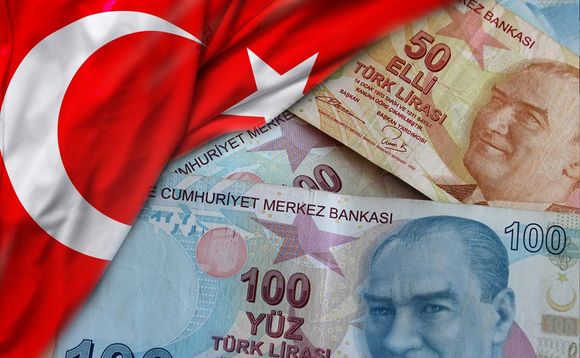
Daily air violations of Greek airspace, the continued occupation of northern Cyprus, a failed invasion of Syria's Idlib province, funding of the losing Muslim Brotherhood in Libya, and overseas military bases in Africa, the Balkans and the Middle East - this is just a sample of the Turkish war machine, despite its failures in all of its recent military adventures.
Ahval's Nurcan Baysal says "there is no money in the treasury. Everyone knows why, but we are not supposed to talk about it. Today it is hard to speak openly about military spending in Turkey. It is also hard to even access information about Turkey’s war expenditure."
This week, Stockholm International Peace Research Institute (SIPRI) released their latest report on global military spending and found that between 2009 and 2019, Turkish military expenditure increased by 27%. More shocking is that Turkey’s military spending increased by 6% in 2019 from 2018 to $20.8 billion, comprising 7.8% of government spending, at $245 per capita.
Baysal recounts the words of Devlet Bahçeli, the leader of Turkey’s far-right Nationalist Movement Party and an ally of Turkish President Recep Tayyip Erdoğan, who in a speech on November 29, 2019 said: "There is a cost of fighting against terror. And we bear this cost for the survival of our state. Those who speculate about the economy do not have any idea about the cost of a bomb. They are speaking idly. We support the statements of Erdoğan about our economy."
Bahçeli continued by giving details about the cost of bombs:
"Storm shells can use 240-250 bullets in one hour. You can use one shell for two hours. This means in one hour you use 500 bullets. The average cost of one bullet is $1,000. If you spend 500 bullets, this means $500,000 in a day. In one military operation, we use 100 shells, which means $50 million only for the cost of shells. The cost of an ordinary bomb used by a warplane is $2,500. Only one hour of gasoline for an F-16 costs $14,000."
$14,000 for an hours flight on an F-16, and in 2019 alone Turkey violated Greece's airspace 4,811 times.
A report by New Economy published yesterday stated that "Turkey had significant foreign exchange outflows which we saw in the previous period due to the huge costs required by Erdoğan's costly imperialist wars."
The extremely detailed report by New Economy, that must be read in its full, found that "Turkey’s probability of bankruptcy is extremely high," along with its three big banks of Garanti, Akbank and the Mustafa Kemal Atatürk-founded İşbank.
"The country’s commercial banks, its last stronghold, have dried up from foreign exchange currency," meaning that Turkey nearly has no money for its import and export companies.
With the country on near economic ruin, needing a miracle to bring it back from the brink, could Turkey start rolling back its international war efforts in Libya, Syria and Iraq, its occupation of Cyprus, its dreams of occupying Greek islands, and its domestic campaign against the Kurdish minority? Highly unlikely.
As Baysal concludes: "No matter what happens in Turkey, whatever changes, some things will remain the same."
